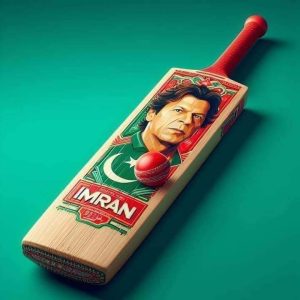The Supreme Court of Pakistan’s recent ruling depriving the Pakistan Tehreek-e-Insaf (PTI) of the “bat” symbol has dealt a significant blow to former Prime Minister Imran Khan’s party ahead of the February 8 elections.
The bat was a potent symbol for the PTI, which helped the party connect with its leader, Khan, who as captain of the Pakistan cricket team led it to victory in the 1992 Cricket World Cup tournament. The symbol had galvanized voters to back the PTI in this cricket-crazy country.
With the bat now out of the picture, the PTI has lost the one identification that would have counted on election day. Without the bat symbol, party candidates will have to contest the polls with different election symbols. Candidates will not have a symbol under which they used to stand united.
The Supreme Court said that the PTI cannot retain its electoral symbol as it failed to provide sufficient evidence of having conducted intra-party elections as directed by the Election Commission of Pakistan (ECP).
As the Chief Justice of Pakistan observed, “a fundamental aspect” of democracy in Pakistan “is the ability to put oneself forward as a candidate and to be able to vote, both within a political party and in general elections. Anything less would give rise to authoritarianism which may lead to dictatorship.”
The denial of the bat symbol to the PTI has created an impression that the party is being sidelined on account of its prolonged battle with the ECP and other important stakeholders. The decision has been critiqued as an excessive and punitive response to not conducting intra-party polls as per the law.
However, others are blaming the PTI for provoking the Supreme Court’s punitive decision. Shabnam Nawaz Awan, an advocate in the Supreme Court told The Diplomat that the court’s fundamental question to the PTI was whether it had “conducted intra-party elections and conducted them according to the party’s constitution.” Instead of “providing documentation and records to address this fundamental matter,” PTI’s top attorneys were busy arguing before the court that the ECP “lacked the authority to scrutinize the PTI’s elections and monitor its internal affairs,” Awan pointed out.
The Supreme Court ruling is not only a setback for the PTI, but also it raises questions about the party leadership’s commitment to democratic processes and transparency within the party.
The PTI went to court over the electoral symbol even though it was aware of its ongoing conflict with the ECP and other state institutions, as well as the fact that it had not complied with the necessary procedures for conducting intraparty polls. “While you can point a finger at a ‘conspiracy’ and at ‘forces’ opposing the PTI, the party should acknowledge that it did everything in its power to hurt itself,” Awan said.
With the loss of their electoral symbol, PTI will now have to find alternative ways to connect with voters. It appears that the party will use its strong social media presence to inform people about the many candidates and their various election symbols.
The party may benefit from this in urban areas and among tech-savvy youth, but the setback will still have an effect because a significant portion of the population still lives in the countryside and constitutes an important proportion of the electorate.
The decision that all PTI candidates will now have to contest elections independently with different electoral symbols that its supporters do not recognize is likely to have significant implications. Firstly, PTI’s angry supporters may still vote for independent candidates supported by their party. However, the absence of a single symbol may lead to difficulties in identifying PTI-affiliated candidates and dilute the overall impact of their support.
Secondly, some PTI supporters may choose not to vote at all and instead opt to stay at home on election day. This could result in a lower turnout of PTI voters, ultimately reducing the overall support garnered by the party. This decrease in voter participation from PTI supporters could potentially benefit other political parties.
It is worth noting that given the current political landscape, it appears unlikely that PTI voters would shift their allegiance towards Islamist parties solely based on religious motivations. Therefore, without a cohesive strategy and clear representation through recognized electoral symbols, PTI may face challenges in maintaining its previous levels of support and securing victory in the upcoming elections.

































